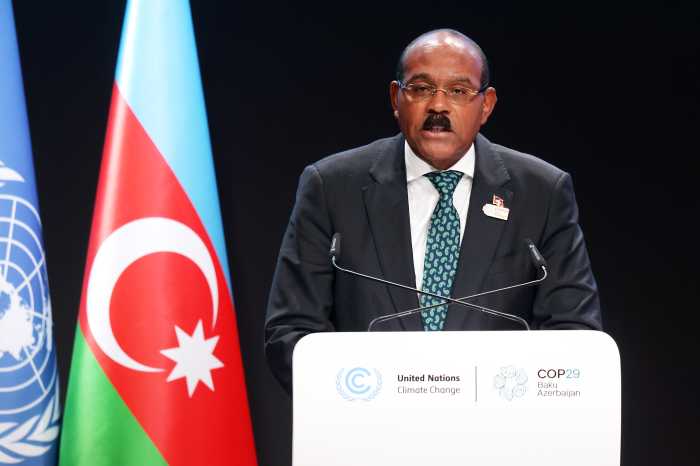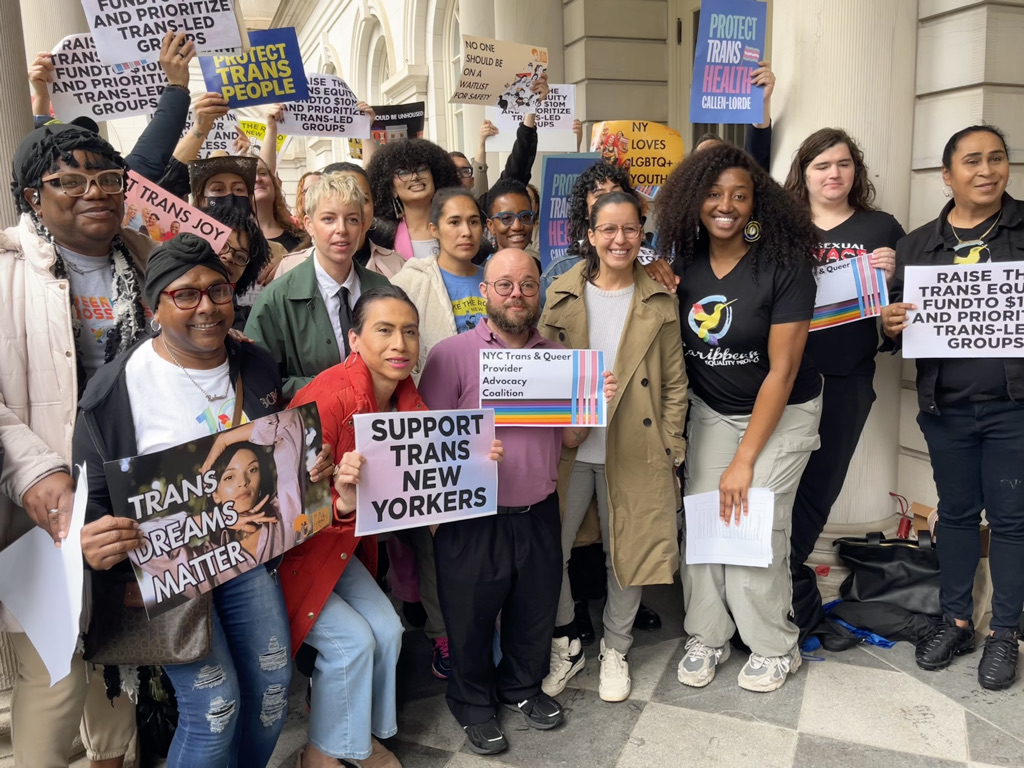In Jamaica colors matter.
Regardless of race, religion, class or social standing, among nationals, two from the rainbow hold sway — green and orange.
Each with distinct coloring of the political parties associate orange with the more Democratic People’s National Party and green with the Jamaica Labor Party, the more conservative of the two, some claims pattern the practices of Republicans.
Both also identify with distinction to orange ‘comrades’ and green ‘Labourites,’ they often adversely oppose politics, leaders and policies.
Historically, the green party is credited with winning eight election campaigns; orange scores one more in the championship arena.
During the 17th national election campaign in the largest English-speaking Caribbean island, the lowest voter turnout in the island’s history recorded victory for the JLP and endorsed the green party’s proposal to elevate the island from ‘Poverty to Prosperity.’
Their winning campaign theme appealed to 47.7 percent of the population, the slimmest victory margin for any political party in Jamaica’s history.
Ironically that figure also represents the percentage of delegates’ vote Portia Lucretia Simpson-Miller acquired Feb. 26, 2006 defeating Dr. Peter Phillips for leadership of the party.
With 47 percent she became the first PNP president to be elected by less than half of eligible delegates.
Final count on Feb. 29 revealed that the JLP won 32 of the island’s 63 parliamentary seats. The incumbent PNP lost by a whisker managing to eke out 31 seats in the House of Parliament.
That the opposition party reversed their role in the governing house by beating the PNP whose orange agenda promised to ‘Step Up The Progress’ was a shocker to diasporans relying on newspaper accounts, predictions from polls and public opinion.
The promise of higher elevation was rejected by a majority 53 percent that abstained from participation.
In contrast to the 42 seats the orange party won in 2011 when they made history electing the first female prime minister, this year’s Black History Month election reflected apathy or perhaps disenchantment that might have contributed to the abysmal turnout registering one in four voters accepting the green manifesto.
Pundits have since attributed the trouncing rejection to arrogance, voter apathy, disappointment with comrades and “bad mind” campaign practices by candidates representing the orange party.
The latter focused on an elaborate house owned by green leader, Andrew Holness. Reportedly, targeted for a smear strategy aimed at the 43-year-old and his acquisition of a ‘mansion’ backfired when the Labourite explained how and why he was able to afford the expensive and opulent abode.
Instead of rebuke and excoriation by a majority, polls revealed that Holness was not harmed by his explanation. Fact is, his approval rating peaked afterwards.
One of the most recurring criticisms of the orange team was that the historic first female leader refused to formally address the nation. That she also eluded debating issues with her opponent, meeting with media and allegedly dismissive when responding to criticisms also helped to diminish her appeal.
The fact she was accused of failing to fulfill campaign promises she made running as the endearing Christian “Mama P” and “Sister P” did not add justification for another term as prime minister.
In her manifesto she promised to continue with an austerity program under the International Monetary Fund (IMF) while Holness proposed an income-tax break for 18,000 Jamaicans earning below $12,383 a year. He said they will be exempt from paying.
Holness was often referred to as ‘Prince Andrew.”
The young leader who served as prime minister for a two-month period in 2011 when he succeeded Bruce Golding — who resigned following the Christopher “Dudus” Coke scandal and west Kingston tumult — will be joined in the House of Representatives by his wife, Juliette Holness.
She made her first political outing winning a seat to represent the St. Andrew East Rural constituency.
Together, the Holness’ also made history as the first husband and wife couple in Jamaica’s Parliament.
“We have carried a message of hope; a message that Jamaica can be a better place,” Holness, 43, said during his victory speech, looking almost surprised by the win.
“We have been given stewardship of the country, and we stand to be held to account for our stewardship. We know that the cost of victory is accountability. The cost of victory is the responsiveness of the government that we will form. The cost of victory is to keep the commitments that we have made,” he said.
“Our campaign was issues-based. We focused on the things that you told us were important to you. We developed plans around them and we discussed those plans with you, and we intend to be faithful to those plans. We will grow the Jamaican economy. We will create jobs. We will give you an accountable and responsive government.”
Among the commitments Holness made in the 10-point plan he unveiled during the campaign, was that a JLP administration would ease the financial tax burden placed on tax-paying citizens. That proposal was vigorously denounced by the PNP, with the party’s leader saying that the plan would destroy the economy.
Addressing supporters at JLP headquarters, the newly-elected St. Andrew West Central representative and PM–elect promised that he planned to ensure a policy that will not conform to “government as usual.”
“This is not the end of our journey. It is the beginning of changing Jamaica,” Holness added.
On Election Day, Feb. 25 after a majority of votes were tabulated, a sea of green colored the winning circle with former leader Edward Seaga, the party’s elder statesman adding to the assembly.
The former PM seemed elated by the victory.
Considering he maintains the record for securing the highest voter turnout in Jamaica amassing 87 percent of the national votes in 1980, the retired politician appeared proud to usher in a 21st century winning green shirt.
In a surprise address to JLP supporters Seaga thanked the young lion saying he was overwhelmed but mostly grateful to his protégé for “protecting democracy” and “for making sure that no party should get more than a certain number of years” in power.
The minority that voted change for the majority were probably buoyed by an alleged sophisticated advertising strategy steered by a Trinidadian & Tobago company named Landmark Communications.
“We basically involved our colleague from Suriname, who specializes in ad creation. They were the ones that created the clean, direct message ads based on the research,” a member of the team told the Jamaica Observer newspaper. With help from two Caribbean nations, it was also reported that the JLP campaign also had the benefit of a Grenadian, “who has expertise in election day mobilization.”
“So what actually occurred was a pure Caribbean team of specialists,” the team member added. “It was a multidisciplinary team with a multicultural background and various experiences. So all of that blended with the Jamaican experience because, let’s not forget, the Jamaican counterparts were very integral in making the message very specific to their community.”
Despite the defeat of the orange party, former PM Simpson Miller retained her seat in South West St. Andrew.
In her concession speech, she said she hoped the achievements made by her administration would “not be ruined.”
“I hope those who succeed us will not throw away the gains made by the People’s National Party government,” the defeated and shocked leader said. “What our team is going to do is monitor everything that happens and every decision taken.”
She conceded saying: “We did all we could to make it easier for the Jamaican people.”
Simpson-Miller was ranked among “100 Most Influential Persons in the World” in 2012 by Time Magazine.
Within the past two to three years 14 out of 16 Caribbean countries have changed their governments. Those who had a government change included Anguilla, Bermuda, St. Martin, St. Kitts-Nevis, United States Virgin Islands, Montserrat, St. Lucia, Grenada, Antigua and Barbuda, Bahamas, Dominican Republic, Trinidad and Tobago and Guyana.
However, three governments have retained power within the past year — the Virgin Islands, Dominica and St Vincent and the Grenadines.
HARLEM CONGRESSMAN WILL RETIRE WITH PRES. OBAMA
When the first Black president completes a second term in office and leaves Washington D.C., another Democrat will also say goodbye to a historic political career.
Harlem Congressman Charles B. Rangel, the second longest serving member in the House of Representatives and revered as the Dean of New York’s congressional delegation will retire after serving 50 years on Capitol Hill.
The 85-year-old lawmaker said he wanted to stay in office while Pres. Barack Obama completed his term and wanted to leave office at the same time.
“I wanted so badly to complete the last year with President Obama, and even though they never gave him a fair opportunity to do all the things that I really had dreamed that we could do together, I would be so annoyed with myself had I retired a couple of years ago.”
Cong. Rangel was the first African-American Chair of the influential House Ways and Means Committee.
He is also a founding member of the Congressional Black Caucus.
The celebrated lawmaker was first elected to the New York State Assembly.
He made a bid for Congress in 1970 when an embattled Congressman Adam Clayton Powell Jr. faced off with detractors intent on unseating him from the position he held as an outspoken Harlem Congressman.
Rangel won that contest and has since maintained leadership in the 13th congressional district.
Already there are candidates to contend his seat, among them : State Senator Bill Perkins and State Assemblyman Keith Wright.
Of the Democratic candidate to replace the first Black president, Cong. Rangel said he thought that Hilary Clinton, the president’s former rival for the position will win. The Harlem representative predicted a majority of delegates will win the democratic nomination and because she has strong endorsement from the Black community and is favored by them.
He added that, “Bernie doesn’t know enough of us.”
OBAMA VOWS TO FULFILL CAMPAIGN PROMISE TO CLOSE GUANTANAMO BAY
President Barack Obama is intent on fulfilling some of the campaign promises he made as a Democratic candidate. He recently presented a long-awaited plan to Congress to shut down the detention facility at Guantanamo Bay.
“I don’t want to pass this problem on to the next president, whoever that is.”
He said keeping the prison open is “contrary to our values.”
Although Congress has repeatedly stunted the president’s effort to fulfill a 2008 campaign promise to close the military prison, he is determined to honor his wish before leaving office this year.
Last November the Senate passed a bill that bans moving Guantanamo Bay detainees to facilities in the United States. In addition Republicans have been campaigning to leave the Caribbean prison as is.
“It’s been clear that the detention center at Guantanamo Bay does not advance our national security.”
“It undermines our standing in the world.”
The plan includes the transfer of approximately 30 and 60 detainees to facilities in the U.S.
Officials claim the plan considers 13 different locations in the U.S., including seven existing prison facilities in Colorado, South Carolina and Kansas, as well as six other locations on current military bases.
The rest of the 91 detainees at the prison could be sent to other countries.
There are currently 35 detainees eligible for transfer.
The plan if enacted will accelerate review of remaining detainees to determine whether they pose a threat or whether they are eligible for transfer.
“When I first ran for president, it was widely recognized the facility needed to close,” the president said. He reminded both parties that former president George W. Bush and former Republican presidential candidate Sen. John McCain, R-Ariz. also approved closure of the Cuban facility.
“Suddenly, many of those who said it needed to close backed off because they were worried about the politics,” he said.
Catch You On The Inside!


























